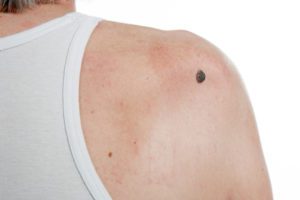Why Consider Mohs Surgery for Basal Cell Carcinoma
- Posted on: Feb 14 2022
 Statistics in skin cancer reveal that basal cell carcinoma is the most predominant form of this disease. It is the role of the dermatologist to alert patients to their risks and to educate them in prevention and awareness of suspicious growths. Additionally, a dermatologist wants to provide the utmost care to patients who are diagnosed with any kind of skin cancer. The more education and training the dermatologist has, the better patient outcomes they can achieve. We believe that Mohs micrographic surgery is one of the best treatment options to accomplish that.
Statistics in skin cancer reveal that basal cell carcinoma is the most predominant form of this disease. It is the role of the dermatologist to alert patients to their risks and to educate them in prevention and awareness of suspicious growths. Additionally, a dermatologist wants to provide the utmost care to patients who are diagnosed with any kind of skin cancer. The more education and training the dermatologist has, the better patient outcomes they can achieve. We believe that Mohs micrographic surgery is one of the best treatment options to accomplish that.
The Mohs technique was developed over many years over half a century ago. Only in recent history has it become renowned for its superior accuracy and efficacy. It is especially useful in treating skin cancers in highly visible areas, but holds immense power in removing basal cell carcinomas and also squamous cell carcinomas with such efficiency that long-term prognoses are improved even for high-risk cancers.
Visibility is only one of several factors that a Mohs surgeon will consider when determining the best treatment option for a given patient. It is also necessary to discern the growth pattern of cancer cells as well as the histologic features of the growth. Sometimes, performing Mohs on the growth is only the first step in a multi-layered approach to care. Following the procedure, some patients require radiation, chemotherapy, immunotherapy, or reconstruction.
What Makes a Growth Mohs-Worthy?
Growth pattern is a significant factor in determining the most appropriate form of care. Mohs surgery may be ideal for:
- Sclerosing BCC
- Metatypical BCC
- Multicentric BCC
- Keratotic BCC
- Infiltrating BCC
- Field-fire BCC
- BCC in combination with SCC, basosquamous cell carcinoma
- Growths affecting deep tissue or bone
One of the most well-known benefits of the Mohs technique is the notable reduction in the risk of recurrence. In addition to appropriateness for primary BCC growths, Mohs may also be suitable for many high-risk or recurring tumors. Another well-known advantage of this precise surgical technique is that it provides patients with what they truly need, and that is peace of mind.
To learn about membership with the American Society for Mohs Surgery or our upcoming events, contact us at (800) 616-2767.
Posted in: Basal & Squamous Cell Carcinoma


